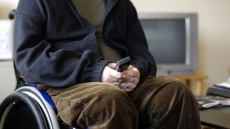An international team of researchers has discovered how a single protein oversees the processing of DNA during sperm and egg generation for successful fertilisation.
The activity of the protein called PP4 becomes even more relevant during ageing.
The findings could, in fact, may one day help scientists to understand the mechanisms underlying age- related, decline in fertility among humans.
"We found that when PP4 was missing, chromosomes failed to assemble correctly and DNA recombination - an important step for genetic diversity - did not occur," said Aya Sato-Carlton from the Kyoto University's Institute for Integrated Cell-Material Sciences (iCeMS) in Japan.
"The resulting eggs were defective and the embryos inside could not survive after fertilisation," Sato-Carlton added.
While a typical adult human cell contains 46 DNA strands, or chromosomes, that carry our complete genetic information, reproductive cells such as sperm and eggs receive half of this number during a highly intricate process known as 'meiosis'.
To understand which proteins help meiosis run smoothly, the researchers from iCeMS, Tohoku University in Japan and the Imperial College London used a tiny worm known as Caenorhabditis elegans to look into the role of PP4.
The researchers genetically engineered the worm so that PP4 was functionally disabled and then observed the consequences of its absence on chromosome regulation during meiosis.
Surprisingly, the authors observed that the effects of defective PP4 became worse as the worms aged, indicating an age-related dependence.
Because the PP4 DNA of worms is over 90 percent identical with that of humans, it is possible that the protein plays a similar role in all animals as a universal regulator of meiosis.
The study was published in the journal PLOS Genetics.





